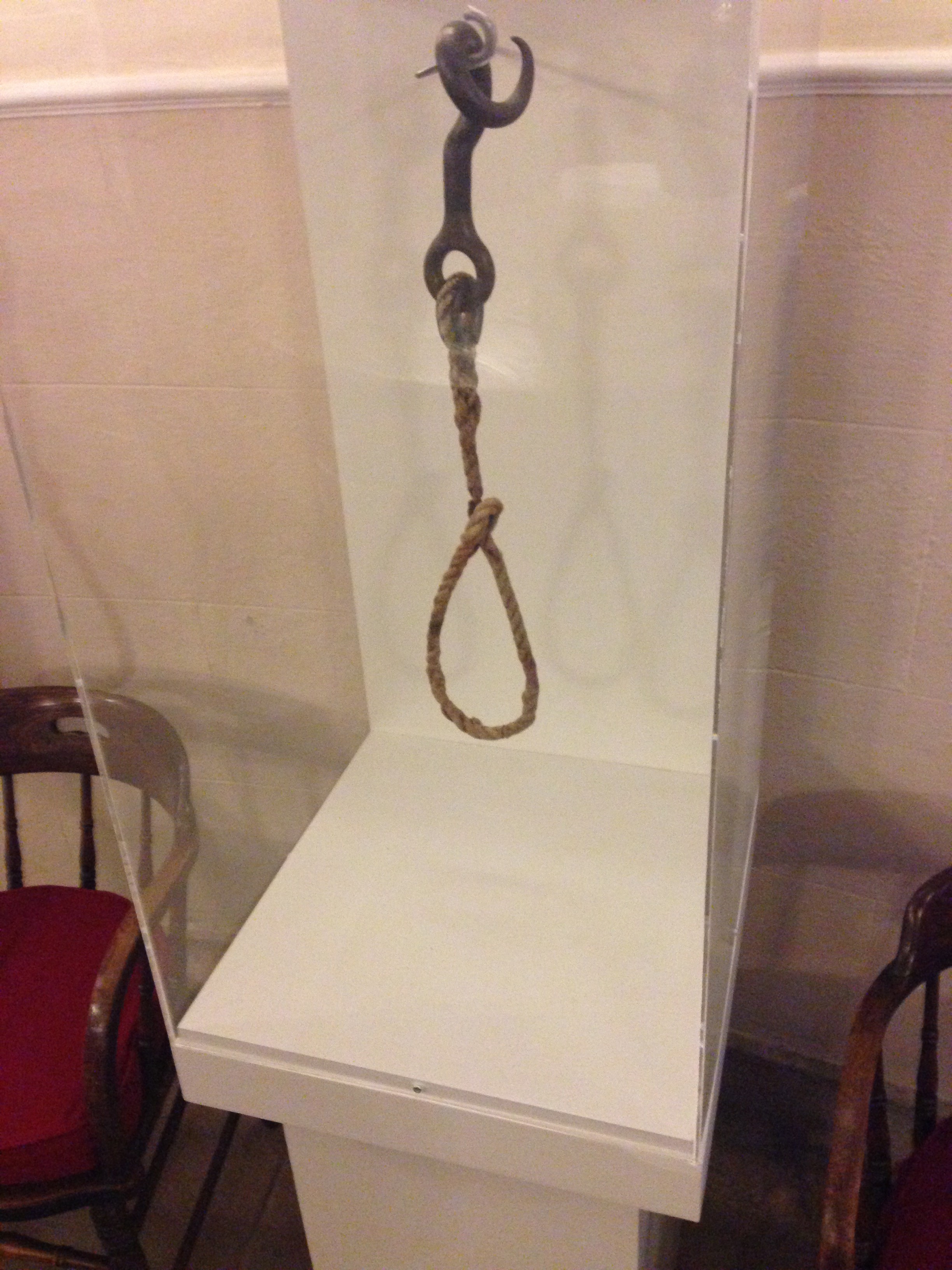
On 11 November 2013, I was convicted at the City of London Magistrates Court of an offence contrary to Article 39 1(b) of the Health Professions Order 2001 and sentenced to pay a fine of £270 plus costs of around £6,000. The prosecuting authority was the Health and Care Professions Council. A week or so later, the HCPC published and distributed a press release on the case which read:
“The Health and Care Professions Council has successfully prosecuted Mark Russell for using the title ‘chiropodist’ without being on the HCPC Register.
On Monday 11 November 2013, the City of London Magistrates’ Court heard how Mark Russell, of Lytham St Annes, Lancashire, had continued to use the title of ‘chiropodist’ despite warnings from the HCPC to stop.
The Court found Mark Russell guilty of an offence with intent to deceive under Article 39 of the Health and Social Work Professions Order 2001. He was fined £270 plus a victim surcharge of £27 and was ordered to pay the HCPC’s legal costs. Director of Fitness to Practise Kelly Holder commented:??
“Individuals cannot practise in the UK using one of our protected titles unless they are registered with the HCPC. It is a criminal offence for someone to claim that they are registered with us when they are not, or to use a protected title that they are not entitled to use. We will prosecute people who commit these crimes, as we have done with Mr Russell.” ??
“Protecting titles is a key component of the work we do to protect the public. We urge everyone to check the Register before they seek treatment from a health or care professional.”
On 26 February 2014 this conviction and sentence was set aside by the Central Criminal Court at the Old Bailey in an unusual appeal procedure, which was successfully argued in front of His Hon. Judge Timothy Pontius, one of the most senior Judges in England and Wales. At the conclusion of the appeal, the barrister representing the HCPC was removed from participating further in this case,
Six weeks later on 10 April 2014, the HCPC amended the press release on their website stating:
“…the Central Criminal Court allowed an application by Mr Russell and the case has been sent back to the Magistrates’ Court for re-trial. As this case is on-going we will not be making any further comment.”
For anyone not familiar to the case it would be perfectly natural after reading the HCPC’s press release to assume that I had acted in a dishonest manner and presented a risk to the public and that the regulator had acted in the public interest in tabling this prosecution.
Nothing could be further from the truth.
Background
The case was brought after I deregistered from the HCPC in 2008 – after twenty-five years as a Registered Podiatrist. The reason I did so is quite simple. The present regulatory regime is not protecting the public as claimed, but placing them at real risk from harm. Where professions are both public and private sector providers, protecting titles, as the sole prohibitory measure offers no safeguards to the public from clinicians that have been struck-off for serious offences – then continue in practice using a different, unprotected title. This unfortunate and potentially dangerous situation is particularly relevant to my own profession where the overwhelming majority of clinicians are in private practice and the use of unprotected titles such as Foot Health Practitioner and Foot and Ankle Surgeon are widespread. Once removed from the register, these individuals are able to continue in practice free from any further regulatory scrutiny or control.
This anomaly in the legislation is well known to the Government, the HCPC and the professions. It was due to be addressed when the HCPC came into existence and had been widely discussed during the consultation period for the Health Professions Order. Protection of Function – or functional closure – had been proposed to deal with this weakness, but the Government insisted that unregistered practitioners should not be unduly prejudiced by these measures and would first have to be accepted onto the register through a process known as ‘grand-parenting’ – a contentious scheme that permitted entry from practitioners with unrecognized qualifications – or in some cases, no qualifications at all, providing they were able to satisfy certain requirements. This was seen as an unfortunate but necessary requirement to secure functional closure and was grudgingly accepted by the profession. However, when the legislation was finally enacted, it allowed for the grand-parenting process without any measures to protect function whatsoever, leaving the weaknesses in the old Professions Supplementary to Medicine Act to persist and carry forward to the new regulatory regime – a double whammy for the profession and public alike.
In 2004, with my colleague Jacqui Baggaley from Edinburgh, we addressed a Committee of the Scottish Parliament on this very issue and heard representations from across the political spectrum on the need for better regulation in podiatry. The MSP for Aberdeen, Mike Rumbles, whose wife, Pauline, is a registered podiatrist observed:
“‘I ask members, when they go home or back to their office, to pick up a copy of the “Yellow Pages” and flick through the section on chiropodists. I defy them to tell me which is the registered chiropodist—the proper chiropodist. Advertisements in the “Yellow Pages” state that the people are qualified chiropodists and, as has been referred to, there might even be a warning at the bottom saying, “Make sure you get the right one.” The situation would be funny if it were not so sad and so serious.
‘The issue is not really about constitutional matters—committees work best when we do not get involved in that sort of thing. This is a public safety issue. When a member of the general public contacts a podiatrist or a chiropodist, they expect a certain standard of service and a standard of professionalism. If someone contacts a doctor, a member of any medical profession or a member of a profession allied to medicine, they expect the same level of service, but that cannot exist under the current system. The HPC thought that the approach that it has taken would be a solution but, as the committee has heard, the system is not working. It will certainly not ensure the closure of the profession or the safety of the public.’
Quantifying the risk to public safety is always difficult, but the standard that should apply, is the one that’s adopted and promoted by the HCPC itself – through its fitness to practise process. It claims:
‘Our fitness to practise process is designed to protect the public from those who are not fit to practise. If a registrant’s fitness to practise is ‘impaired’, it means that there are concerns about their ability to practise safely and effectively. This may mean that they should not practise at all, or that they should be limited in what they are allowed to do. We will take appropriate action to make this happen.’
Whilst protecting the public is the primary function of the HCPC, this statement is entirely false and misleading – as it cannot legally take any action to prevent anyone from practising, even following a striking-off order – providing they use an unprotected title.
Three recent cases exemplify the seriousness of the situation where registrants from our profession that have been found guilty of serious misconduct – including offences of a sexual nature and fraud and dishonesty – are able to continue in practice with impunity, unrestricted and without statutory regulation or scrutiny. In the case of Stephen Gardiner, the registrant was struck-off the HCPC register for fraud and premeditated dishonesty, yet he still practises under the guise of a ‘Clinical Director’. Correctly identified as posing a serious risk by its own Fitness to Practise Panel, it follows that in these cases the HCPC’s very function has increased the exposure to danger the public faces from these individuals – in clear conflict to its primary statutory function.
Following the Scottish Parliament Petition, I contacted the HPC on several occasions to seek clarification on what the regulator might do to address this problem, but the answer was always the same – nothing could be done as they had to operate under the existing legislation – and that simply provided for protection of title. Only Parliament could amend the legislation. I then formally wrote to the Registrar and Chief Executive to raise these concerns but received no reply and subsequently in September 2008 I deregistered in protest, advising the HCPC to my course of action.
I had assumed that a blatant breach of the legislation might provoke a response to my concerns, but unfortunately I was mistaken. I had taken steps to remove all references in my practice literature to the terms HPC and/or Registered and informed all my patients, colleagues and other agencies I deal with in my work on my position with the regulator. Nothing happened. Then in April 2010, some 18 months after I had deregistered, I received a letter from a case officer writing on behalf of the Registrar regarding my concerns over Protection of Title. He replied:
“On the effectiveness of the regulatory environment, you will appreciate that the Health Professions Order 2001 is framed in such a way that it protects certain designated titles – including chiropodist and podiatrist – rather than functions. I understand that you may disagree with this approach but it is nonetheless the one that Parliament saw fit to adopt and is therefore the legislative framework within which the HCPC must operate.”
But that is not quite true. When Hearing Aid Dispensers came under the HCPC’s regulatory responsibility in 2010 they were subject to Protection of Title and Function – and with very good reason. The Department of Health’s position of regulatory functions is quite clear:
“There are instances where the use of protection of title is supported by use of protection of function, such as for Hearing Aid Dispensers. In that instance, there is a specific need for both approaches to be used, as the target group for regulation are private sector providers and use of title alone would not have effectively captured the target group, so reference to their function was also required.”
Which, of course, is exactly the point with podiatry where out of 13,500 registrants, only 3,480 practice in the public sector.
By now it was clear an impasse had been reached, as the HCPC were unable to acknowledge the obvious – that instead of protecting the public, they were, by their very function, creating a greater risk. It was equally clear that they were unwilling to do anything about it. It came as little surprise therefore when the predictable “cease and desist” letters started to arrive a few months later, followed in 2012 by more formal demands and threats of legal proceedings from the HCPC’s solicitors, Bircham Dyson Bell.
Westminster Magistrates Court
Following a short exchange of correspondence, I received a summons to attend Westminster Magistrates Court on 22 May 2013 to face a charge that:
‘Between 30 August 2008 and 7 March 2013 contrary to Article 39(1) (b) of the Health and Social Work Professions Order 2001 (enacted pursuant to sections 60 and 62 (4) of the Health Act 1999) you did use a protected title to which you were not entitled namely the title of Podiatrist and/or Chiropodist.”
This was entirely expected. What was not expected was a number of references in the “evidence” bundle that accompanied the summons that I had used the titles HPC Registered and State Registered Podiatrist in correspondence since deregistering in 2008. As all references to the various prefixes had been carefully removed from my practice literature, this came as a surprise, however on closer inspection it became obvious that these “exhibits” had been sent by a former colleague – an osteopath that I used to rent a room from. I was relatively easy to obtain both the original letters from the recipients together with statements from the secretaries who had typed them confirming these had been altered and were submitted as a malicious complaint.
Although there was no specific suggestion on the charge that I had misled or deceived anyone, the implication of this evidence, if unchallenged, would be that I acted dishonestly in claiming I was registered with the HCPC when, in fact, I was not. On that basis, I attended the initial hearing at Westminster Magistrates Court to plead not guilty.
Just prior to the case being called, I was approached outside the courtroom by the solicitors and Counsel for the HCPC and asked if I had legal representation. I explained I was representing myself. Counsel then asked what my intentions were that day – to plead guilty or not guilty – and if we could have an informal chat about the proceedings. The conversation started with:
“Mr Russell, I would like you to know that this is a very reluctant prosecution.”
Against this background it was made clear to me that both Counsel and the solicitors for the HCPC had much sympathy with the argument for more effective regulatory control. This was no surprise. In all previous discussions with HCPC case officers – the same view was offered, albeit unofficially, that the present legislation was, perversely, endangering the public it was meant to protect.
I was then asked how I intended to plead and what skeleton argument would be given to the court that day. On the basis that I objected to the inclusion of the fraudulent documents, I explained that I would be pleading not guilty – before giving Counsel the original documents and witness statements relating to that evidence. The solicitors carefully read these and a short discussion was held in private.
When they returned, Counsel agreed that this evidence was unsound and should not be put before the court. I was then asked directly what would I do in relation to my plea if this evidence was removed entirely from the case? I informed her that my plea would then change to guilty. Counsel suggested this would be a wise move as it would keep costs to a minimum and the court would appreciate a guilty plea when determining how to dispose of the case at some future hearing. On that basis, we agreed to work towards a joint statement of fact and exhibits over the next few weeks.
In court, I lodged my not guilty plea and gave the court an outline argument to support the plea, namely that I considered the legislation deeply flawed and deserved to be challenged. This was duly accepted and a provisional trial date was set for later in the year.
Immediately following the hearing, prosecution Counsel informed me that they would send a revised evidence bundle that excluded all exhibits that had been fabricated and submitted maliciously. This was received by email on 29 May 2013, which read:
Dear Mr Russell
Further to our discussions at the preliminary hearing last week, please find the following documents attached:
1. The revised witness statement of R.B. Paragraph 15 has been now been amended and pages 27-32 of the exhibits have been removed.
2. The revised witness statement of J.C. Paragraph 6 has now been amended. (I recall that in our discussion you also raised an issue regarding the evidence produced from third party websites, namely that you do not have any control over their content. The degree of control that you have over what appears on different websites is a matter for you to raise in your own defence, if you wish to defend yourself on that basis. Hence, parts remain in J.C’s statement merely as evidence of what she found when she searched the internet).
3. The draft admissions prepared by our Counsel.
On the basis that all evidence which suggested I had acted improperly or dishonestly had been removed, I then indicated my intent to change plea to that of guilty during a joint telephone call with the solicitors and Counsel for the HCPC and confirmed it by letter on 17 June 2013.
I have been asked many times, why I pled guilty at this juncture – and the answer is again quite simple. I considered this the honest and proper course of action. I had clearly broken the law – or so I had thought – by using a protected title whilst not registered, but I had done so for good reason – and I would have expected the court to take this into consideration these when deciding how to dispose of the case. Once my change in plea had been received, a sentencing hearing was scheduled for 11 November 2013.
City of London Magistrates Court
It is one thing for a lay-person to prepare for an appearance at a criminal court, but to represent themselves during legal proceedings is a daunting task, even for those relatively experienced in the matters they are charged with. Whilst I was fairly confident that I understood the legislation and its implications for public safety – and I was reasonably confident I could argue the merits of my case to the Magistrates – I had little knowledge of court procedure and protocol. Until that point I had relied on the advice given by Counsel and solicitors for the HCPC – whom I had found both helpful and considerate. But I was acutely aware that this was not my usual – or preferred – theatre of operations
It was certainly a unique case – the first prosecution of Protection of Title legislation and the first criminal prosecution ever by a health regulator. It was also unusual insofar as I was not the kind of offender this legislation was targeted for. From my discussions with the HCPC’s solicitors and Counsel it was clear they understood – if not respected – the position I had taken and I hoped the Magistrates would be of similar mind. Was I in for a surprise!
Shortly before the case called at 2pm at the City of London Magistrates I met the agents for the HCPC outside the court, where they explained what would happen during the proceedings. The charge would be read to me and I would enter a plea. Counsel for the HCPC would give a brief outline of the case and then I would have an opportunity to offer a plea in mitigation before the Magistrates passed sentence. I was then handed a sheet of hand-written notes and advised that the prosecution may ask the court to award some or all of the costs against me. The notes were the HCPC’s legal costs – which amounted to almost £6,000
We then proceeded to court where the charge was read out by the Clerk of Court in papers prepared by the HCPC. I entered my plea of guilty before the prosecuting Counsel stood to give her case summary. What followed was a highly misleading version of events, depicting me as a “mischievous individual” whose reasons for breaking the law were “unknown”. The court was told that I had “self-styled” myself in “signing various letters and invoices as a “HPC Registered, Registered and State Registered Chiropodist and Podiatrist”. In doing so she had cited directly the exhibits that had been removed from the evidence during disclosure and agreement in June.
I was so shocked and taken aback by these turn of events that I lost a little of my composure when I was asked to make a plea in mitigation – and what I did say fell largely of deaf ears.
With the benefit of hindsight and acquired knowledge, I should have objected to this evidence as soon as it was given to the court on the grounds that it was inadmissible. I should certainly have changed my plea to ‘not guilty’ and asked that the case be remitted back for trial. But I didn’t. One doesn’t usually encounter these circumstances in a podiatry surgery…
I did however have the foresight to inform the court that an appeal would be lodged immediately after sentence was passed, but to whom and on what grounds – given that I had already pled guilty – I had no clear idea.
A couple of colleagues had come along to court that afternoon to lend their support and we adjourned to a nearby bar afterwards to recount what had taken place. Rarely have I been so grateful for company and their kind words were a welcome passenger on the long train home that night.
Over the following week I lodged an appeal with the Magistrates Court on the grounds that prosecuting Counsel had misled the court during her case summary and had relied on inadmissible and unsound evidence which had unfairly influenced the court when determining their sentence.
The week after the appeal was lodged, a colleague called to advise the HCPC had posted a press release on their website and distributed it to various media stating I had been convicted of an offence with intent to deceive. I immediately contacted their solicitors to ask that it be removed but was advised that as ‘intent to deceive’ was written in the legislation, the HCPC could say what they like.
It was at this point I realised that I had pled guilty to an offence that contained an element to the charge ‘with intent to deceive’. Whilst I had read the provisions in the legislation many times – and had understood what the term ‘with intent to deceive, either expressly or by implication’ actually meant, I did not realise it was part of the charge I faced. It was not part of the alleged offence in the summons for the case and was never referred to by the prosecuting Counsel or the solicitors for the HCPC during our discussions. When the exhibits that might have supported a charge of deception were removed, I had assumed there was no question of dishonesty. Why would there be? I was protesting against a system of regulation that is endangering the public – why should I mislead or deceive anyone into thinking I was registered when that was not the case?
Shortly before Christmas, I was contacted by a reporter from my local newspaper in Blackpool, who said the HCPC had been in touch asking if the Gazette would be interested in publishing a press release of a recent court case in London. She wondered if there was another side to the story.
The Blackpool Gazette published the first article on 20 January this year. The HCPC refused to comment. A week later I was contacted by a local solicitor who had read the article and thought he might be able to help. An amended appeal was lodged with the court on 4 February and a hearing was granted in the Central Criminal Court at the Old Bailey on 26 February 2014.
The Old Bailey
The case at the Central Criminal Court was held amidst tight security and substantial media interest. Three other cases taking place in adjacent courtrooms that day – the serial killer, Joanna Dennehy; the sentencing of Lee Ribgy’s killers and the media trial of Rebecca Brooks and Andy Coulson – commanded most of the attention – as did the vociferous presence of the BNP and English Defence League outside.
My submission to the court was made by Barry Smith in an unusual legal procedure – an application to vacate my guilty plea. Although we were asking the court to set aside the conviction, sentence and costs – because I had pled guilty to the offence, I did so in the belief that the charge did not include a vital element – the part that stated ‘with intent to deceive’.
After hearing argument from both prosecution and defence Counsel, I was asked to give evidence under oath and answered questions from both Counsels and the Judge – the critical questions centering on the means rea – what was my intention at the time of pleading guilty and why?
In summing up, the Judge allowed the application and set aside the conviction and sentence on the grounds that my plea was equivocal; that I believed or was given to believe the charge I faced did not include an intent to deceive. Furthermore, his decision was reinforced when he observed this part of the legislation was missing from the charge sheet given to the Clerk of Court by the prosecution on 11 November – and was not read out to me on the day.
As it turned out the term “with intent to deceive, either expressly or by implication” is an integral and essential part of the charge. If one does not deceive, there can be no offence. As the prosecution barrister pointed out, I could have used, Formerly Registered Podiatrist or Previously Known as a Podiatrist without infringing the legislation – which really does make a mockery of the regulation. I had simply used Podiatrist – nothing else.
At the conclusion of the case, the Judge recommended the prosecution barrister, Lydia Barnfather , should excuse herself from participation in any future proceedings.
The current legal position is that the case has been sent back to the Magistrates Court for re-trial, if the HCPC decides that is what they must do – and despite several attempts to contact them, they have yet to return our calls and I am none the wiser to what may lie ahead.
There have been some other developments however. My local MP has taken up the case with the Health Secretary and I received a letter from the Parliamentary Under-Secretary of State for Health – Dr Dan Poulter – who helpfully explained the Government’s position and I am delighted we are in agreement. The Government has since published the Law Commissions Report of the Regulation of Health Professionals and predictably it has side-stepped the issue of functional closure, despite recommendations from the Department of Health, the Association of Disciplinary and Regulatory Lawyers and the Society of Chiropodists and Podiatrists. The Law Commission has simply passed the buck back to Parliament and recommended it undertakes a full review of regulation of titles and functions for the health professions. So what exactly was this review supposed to be about then?
I am left with a sense of disappointment. Disappointment that a glaring weakness in medical regulation can be ignored for so long. What does it take to focus attention and fix the problem? A few deaths? A scandal or two?
Raising awareness about serious regulatory failings doesn’t appear to work either – despite what the Government might claim. Whilst those in the public sector might be offered some protection under the Whistleblowers Charter, those of us in self employment have no such protection – and when our concerns are raised about a regulator who has all the powers of a criminal prosecutor and is willing to use them, then the consequences of standing up for such principles can be severe indeed.
The greatest disappointment is the Health and Care Professional Council – whose approach to this case has been highly unfortunate. Aside from the highly damaging and erroneous press release – issued whilst an appeal was in process – in recent days the HCPC have now stated in correspondence to colleagues that I have been subject to a Fitness to Practise hearing and the claims on their website are “factually accurate”.
“Dear ……..
Thank you for your email of 14 April to Jacqueline Ladds. Jacqueline is out of the office and has asked me to respond on her behalf. I should like to reiterate that we believe our press release is factually accurate. We do not comment on individual Fitness to Practise cases and have no further comment on this matter.
Yours sincerely
Jonathon Jones
Stakeholder Communications Manager, HCPC.














